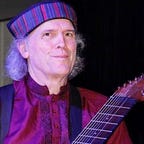The Privileged Access of the Underprivileged
How Social marginalization produces Epistemic Privilege
19 min readApr 20, 2023
Privileged Access is a technical term coined by Analytic philosophers of mind in the mid-20th century. It refers to the special relationship that we have with our own mental states. We can both know about my pain, but only I can feel my pain. We can both know about my thoughts, but only I can think my thoughts. Philosopher William Alston put it this way:
“The kind of knowledge a person has of his {sic)} own mental (psychological) states…
